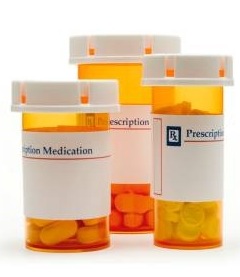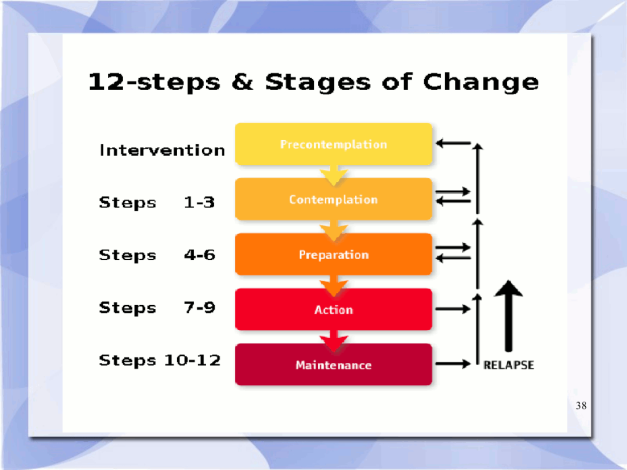How to Stop Drug Addiction
How to Stop Drug Addiction
|
Get Help Now! 800.815.3910 Available 24/7 The road to recovery starts here! Trusted, confidential help available 24/7. Speak with an addiction treatment specialist anytime. Please call us now at 800-815-3910! |

Is there a cure for addiction or is it a chronic disease?
Sadly, currently there is no cure for addiction or alcoholism,
it’s considered to be a disease that can be treated but not cured.
Like the heart patient needs to change their diet the
addict/alcoholic can’t use use/drink.
Is there a cure for addiction/alcoholism? The short answer is no,
mainly because the determining factors that led to a person’s
condition don’t change. But people can manage the problem and lead
a healthy, long and productive life.
Addiction does not have to be the winner, but those suffering need
the tools to access strength and support. You have to be honest with
yourself and realistic about the problem. Addicts need to realize
they can’t take a drink, because the consequences are serious at
the very minimum, and too often deadly. There is hope.
Our hope is that the information about over drinking on this web
site, and the links to various resources around the country, will
help you in your path to healing.
Is There an Addiction/Alcoholism Cure?
It’s one of those hot button issues. On the one side, there are
those who believe from their evidence that there is a positive cure
for addiction/alcoholism, while the other side is convinced that
there is no such cure.
One side says: Abstinence not needed
A story by Lindsay Chura from June 13, 2008, in US News and World
Report told of how researchers from the University of Virginia Health
System concluded that the drug topiramate “can lead to a reduction
in heavy drinking.” The drug is used to treat seizures and is
approved for that purpose by the Food and Drug Administration.
Roy Eskapa, PhD., author of the book “The Cure for Alcoholism:
Drink your way sober without willpower, abstinence or discomfort”
writes of using naltrexone, an opioid receptor antagonist, and the
“Sinclair Method” to rollback the addictive brain action to its
original state.
Both the aforementioned works suggest that people can take a pill
and continue to drink, only in a responsible way.
The other side says: The cure for addiction/alcoholism is to
not drink/use!
The other side of the fence looks at the same evidence and draws a
different conclusion. They see addiction/alcoholism as a chronic
disease that can be treated and managed, but not cured in much the
same way as there is not a cure for diabetes, heart disease and other
conditions.
While medical intervention is used, such as detoxification and
perhaps drugs, there is no encouragement that the person may continue
drinking. Abstinence is the key to controlling the disease, or stated
another way; the cure for alcoholism is to not drink and the cure
for drug addiction is not to use.
Treatment plans that offer a pill as the primary weapon against
the condition of addiction/alcoholism will sometimes also refute any
claims that the 12 Step recovery plan has any validity whatsoever, as
they will claim that the steps have a greater than 90 percent failure
rate.
Those who “fail” are likely, according to 12 Step advocates,
to be the ones who do not work the steps and who refuse to allow
themselves to submit to the “power greater than ourselves” or
“God, as we understood him.” While not a religious plan, the 12
Steps offer a deep, soul-searching pathway to recovery.
There are a couple of main drugs that are used in treating
alcoholism. Naltrexone has a blocking effect on the area of the brain
that feels pleasure from alcohol or other drugs. The drinker doesn’t
get the same pleasure from the alcohol, so the craving to drink gets
reduced. That’s the idea.
Disulfram is another drug that is used to treat alcoholism, only
instead of blocking the pleasure receptors, it makes the drinker sick
to his/her stomach and causes other unpleasant side effects. Neither
drug is claimed to be a cure for alcoholism, but a management tool.
Different Goals
The goal of many non 12 Step advocates is not so much to stop
drinking, but to drink less, sometimes called a harm reduction
approach. Organizations such as Alcoholics Anonymous preach
abstinence, as the only requirement for membership is the desire to
not drink or use drugs. The debate rages on and will continue to be a
hot button issue for the foreseeable future.
and Finally Remember:
“Ask and it will be given to you; seek and you will find; knock and the door will be opened to you. For everyone who asks receives; he who seeks finds; and to him who knocks, the door will be opened.”
– Matthew 7:7-8
Recent Articles
-
A Men’s Sober Living Facility That Was Once Matthew Perry’s Home
Oct 16, 17 09:14 AM
Many adults today who are in their 30’s and 40’s today are very familiar with the names Monica, Rachel, Phoebe, Ross, Joey and Chandler from the TV show
-
Drug Withdrawal
Oct 14, 17 08:32 AM
Drug Withdrawal can be both physical and psychological, because not all addictions are categorized as physical dependence. In general it can be nasty business.
-
Psychological Addiction
Oct 13, 17 09:33 AM
Psychological addiction is in the process category. This is interesting because some abuse of drugs, such as marijuana, may be more process than substance.

** We’re also launching four new
classes which will help you learn how to use motivation, affirmation
and encouragement to end addiction in yourself or a loved one. Each
class will focus on an evidence-based concept, explaining how to illicit positive
change
in yourself or in someone you love.
We will teach you practical techniques that
research has shown to be effective for achieving change and successfully ending addiction.
We’ll begin offering these classes this September through Learn-It-Live (Learn-It-Live is easy to use teaching tool and you don’t need to download anything to use it). Click Register Now! below to join one of our classes. The registration process includes setting up an account, but you determine your screen name to protect your confidentiality.
Four new addiction classes:
 |
– Addiction 101, a FREE 60 minute course introducing key substance addiction recovery concepts. This seminar examines many aspects of drug addiction, including symptoms and treatment. It also introduces the Stages-of-Change as a building for recovery. It will be held on Monday November, 6 at 6:00pm central-time. |
Addiction 101 Register Now!
|
|
 |
– Intervention, introduces you to Change-Talk as an alternative to “tough-love”. Change-Talk is a method, which you can learn, to get an addict (including yourself) to move away from addiction and toward recovery. This is a 2-hour class that meets Thursday November 9, at 10:00 am central-time at a cost of |
Intervention
|
|
 |
– Change-Talk, is a building-block for addiction recovery. This course |
Change-Talk Register Now! |
|
 |
– Effective Conversations, explains how to use conversation to connect for recovery. Reflective listening and change-focused conversations often facilitate positive change and addiction recovery. This is a 2-hour class that will meet on Thursday, October 19 at 10:00 am central-time, at a cost of $10. |
Effective Conversations Register Now! |



